Nanoparticles: Agricultural applications and their role in disease management.
Supervisor Name
RANA Samara
Supervisor Email
r.samara@ptuk.edu.ps
University
Palestine Technical University
Research field
Agricultural Science

Bio
Rana Samara is a distinguished Professor of Entomology at Palestine Technical University-Kadoorie (PTUK). She is known for her exceptional contributions to biological control, crop protection, and agricultural sciences. She holds a Ph.D. in Entomology and Biological Control from the University of Hohenheim, Germany, an M.Sc. in Entomology, and a B.Sc. in Plant Protection from the University of Jordan. Prof. Samara's career spans over 20 years of teaching and research, during which she has significantly enhanced academic curricula and supervised numerous graduate and undergraduate students. Prof. Samara's administrative roles have served as Dean of Scientific Research, Director of the Kadoorie Agricultural Research Center, and University President Assistant for International Academic Affairs at PTUK. Her leadership extends to serving on prestigious advisory boards, including the Palestinian-German Science Bridge (PGSB) and Horizon 2020 programs. She has also led various committees on graduate research, scientific publications, and institutional development. Prof. Samara's research expertise includes environmental risk assessments, pest management strategies, and innovative approaches to biological pest control. Her prolific academic output includes over 50 peer-reviewed publications and presentations at national and international conferences. Her work on plant-pest interactions, essential oils, and virus transmission in crops has contributed to advancing knowledge in agricultural resilience and food security. In addition to her academic roles, Prof. Samara has served as a consultant and trainer for major international organizations, including the Food and Agriculture Organization (FAO), where she led initiatives such as emergency preparedness for combating Fall Armyworm and training of trainers (ToT) programs that empowered hundreds of young professionals in the agricultural sector. Prof. Samara is recognized with numerous awards, including the Palestinian American Research Center (PARC) and the Natural Sciences and Engineering Research Council of Canada (NSERC). She continues to impact her field through interdisciplinary collaboration and research excellence. She fosters partnerships that bridge academic institutions, government agencies, and industry stakeholders, contributing to sustainable agricultural development and scientific innovation.
Description
This study focuses on the green synthesis of silver nanoparticles (AgNPs) using entomopathogenic fungi and their application as an eco-friendly pesticide for pest management. Nanotechnology deals with materials at the nanoscale (1–100 nm), where unique properties emerge. Traditional chemical and physical methods for nanoparticle production are costly and hazardous; thus, biological, environmentally friendly methods like green synthesis using fungi are gaining attention. Fungi-based synthesis is advantageous because fungi are easy to culture, require simple nutrients, and can produce large amounts of nanoparticles through secreted proteins and enzymes. Certain fungi such as Aspergillus niger, Beauveria bassiana, Metarhizium anisopliae, and Verticillium spp. are capable of producing AgNPs efficiently. These fungi are also natural pest controllers, infecting insects through their conidia, which germinate on the insect body, penetrate the cuticle, and kill the host. The motivation behind the study arises from the environmental hazards posed by chemical pesticides and the increasing resistance of pests. Using entomopathogenic fungi coated with AgNPs could improve fungal adhesion to insects, enhance pest mortality, and maintain fungal viability under harsh environmental conditions such as high temperature, UV exposure, and humidity. Key challenges include ensuring nanoparticle size optimization, fungal viability, and large-scale production feasibility. The research raises several questions: Will health authorities approve nanoparticle-enhanced biopesticides? How do environmental factors like pH and temperature affect nanoparticle synthesis and fungal viability? What conditions optimize nanoparticle production and fungal performance? Can nanoparticle coating enhance insect infection rates and mortality? Previous studies show that biologically synthesized AgNPs have significant antibacterial and insecticidal properties. The use of entomopathogenic fungi like Beauveria bassiana for nanoparticle production is promising, offering biocompatibility and eco-friendliness while reducing chemical pesticide use. The proposed methodology includes: Sample collection: Gathering aphids and fungi from infected plants and dead insects. Fungal isolation: Culturing fungi on Potato Dextrose Agar (PDA) and Sabouraud Dextrose Agar (SDA) media, followed by morphological and molecular identification. Biosynthesis of AgNPs: Producing nanoparticles by incubating fungal filtrates with silver nitrate under controlled temperatures (10°C, 15°C, 20°C, 25°C). Characterization of AgNPs: Studying nanoparticle properties and confirming synthesis. Bioassays: Infecting barley plants with aphids in greenhouse conditions and applying the fungal AgNP treatments to evaluate aphid mortality. Ultimately, this project aims to develop a sustainable, bio-based pest control strategy that can benefit Palestinian agriculture by offering an effective and environmentally safe alternative to chemical pesticides.







